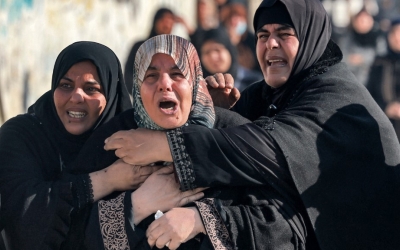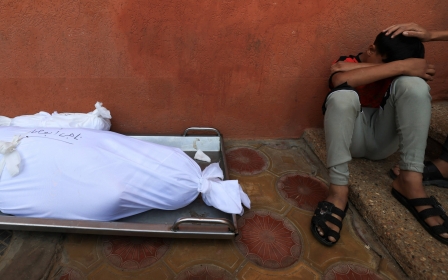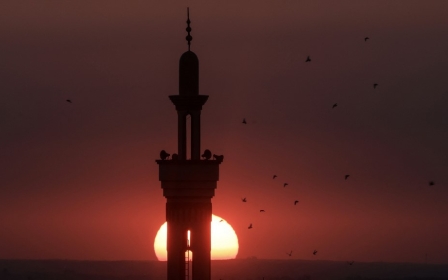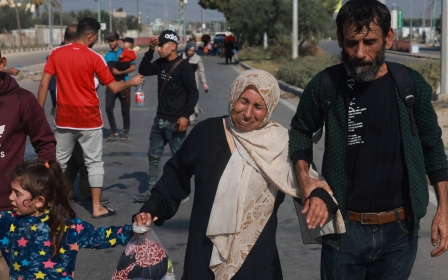War on Gaza: A mother's traumatic journey through childbirth under Israeli bombing
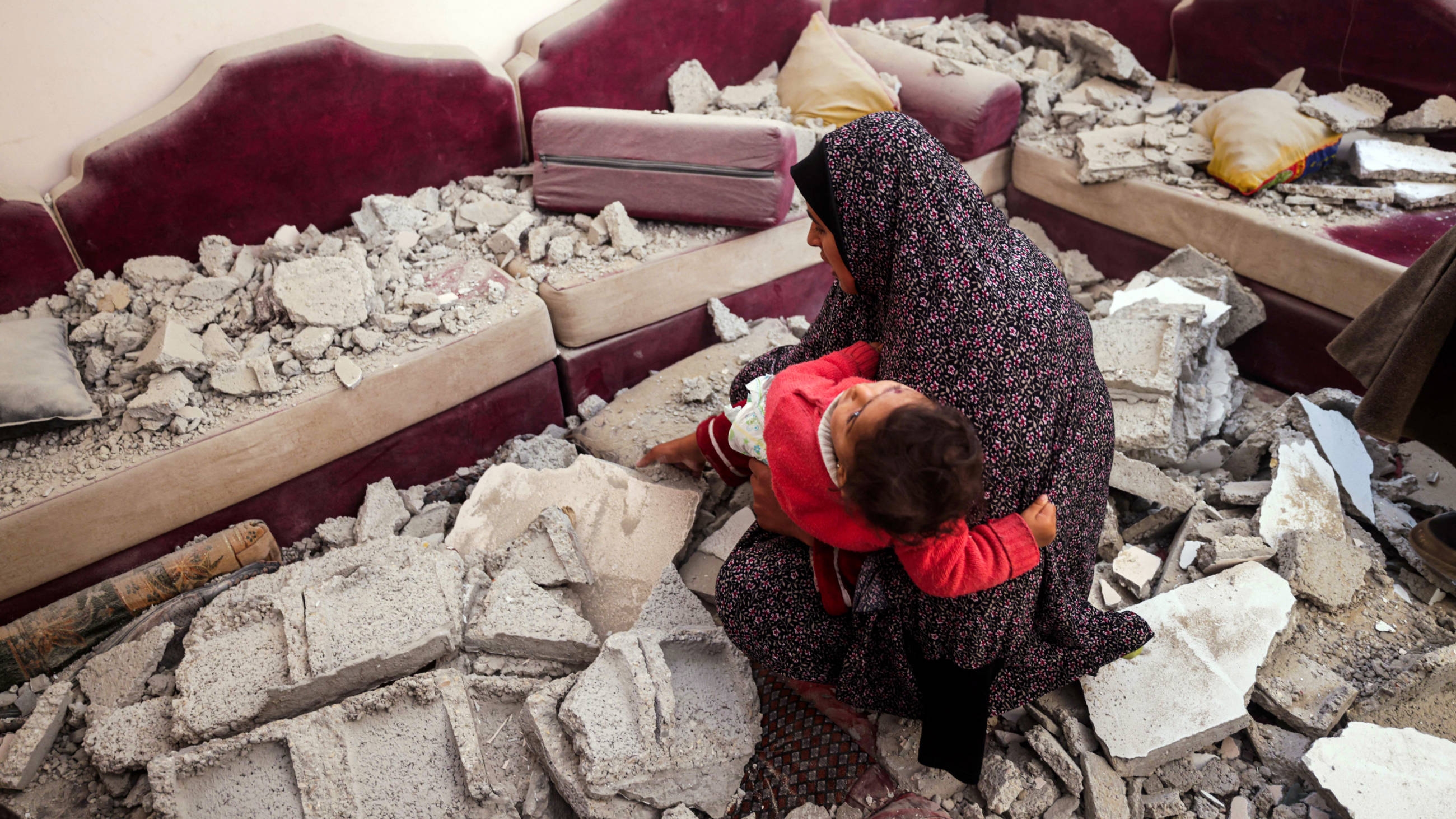
Heba Labbad, a 27-year-old mother of three, describes to Middle East Eye's correspondent Aseel Mousa the terrorising experience of being a pregnant woman having to quit her home, of giving birth amid the paralysing sounds of Israeli bombing and being separated from her husband after he was detained by the Israeli military.
When the Israeli aggression on the Gaza Strip started, I was nine months pregnant, suffering through pregnancy pains, fatigue and exhaustion.
The relentless bombing only intensified my distress, adding fear and tension to my already difficult pregnancy. My thoughts were consumed by concern for the well-being of my two young children, Leen, five, and Hassan, three, as well as for the unborn child in my womb.
On 7 October, my husband, our children, and I were forced to flee our home in al-Nasr neighbourhood in northern Gaza, seeking refuge in Beit Lahia. The sound of explosions from the Israeli bombing was relentless. In addition to the continual threat of death, we also faced severe shortages of food, drinkable water, and cooking gas, exacerbating the challenges we were already enduring.
The aspect that terrified me the most was my concern for my children. Seeing them cry and scream in terror at the sound of every Israeli strike was unbearable. I was also feeling crippling anxiety about my impending childbirth, more and more as the due date, 15 October, approached.
New MEE newsletter: Jerusalem Dispatch
Sign up to get the latest insights and analysis on Israel-Palestine, alongside Turkey Unpacked and other MEE newsletters
But my labour was delayed, and I had to make two trips to al-Shifa hospital, once during the third week of October and again during the fourth.
Transportation was a dangerous challenge. My husband and I had to navigate the journey to the hospital on foot as transport has been unavailable since Israel imposed a siege on Gaza and cut off fuel in the early days of the war.
The conditions in al-Shifa hospital were distressing and frightening.
Each visit left me anxious. The maternity building was crowded with displaced individuals, and the Israeli bombings posed a constant threat. During one of my visits, Israeli forces launched a fire belt near the hospital on al-Jalaa Street, sending me into a state of terror.
On the evening of 29 October, I experienced labour pains and I rushed to the hospital, only to find myself in an entirely unsuitable environment.
I named my son Kenan, but the Israeli aggression has made it impossible for me to obtain a birth certificate. The health system in the Gaza Strip has been decimated due to the ongoing siege, and the paralysis of government institutions has meant that my son could receive neither vaccinations nor medical examinations.
Fear of displacement
When the Israeli military ordered Palestinians to relocate from the north to the south of the Gaza Strip, my husband, concerned about my approaching childbirth, resisted the move.
After the birth of my son, the occupation established a so-called "safe corridor", but we hesitated due to the reports of suffering and humiliation experienced by hundreds of thousands of displaced people.
Seeing my children cry and scream in terror at the sound of every Israeli strike was unbearable
The fear of displacement does not go away. More than 90 percent of Gaza's 2.3 million people have had to move from their homes since the war started.
On 7 December, the Israeli occupation reached our area in Beit Lahia and forced people out of their homes. They arrested the men, including my husband, Ayman, and ordered women and the elderly to go to Kamal Adwan Hospital.
We walked to the hospital on foot, and my heart ached for my husband. These moments were tragic, and even now I continue to grapple with postpartum fatigue while caring for three young children.
On 14 December, the Israelis released my husband, but he was forced to stay in Rafah, in the southern Gaza Strip. During his detention, he was subjected to some of the harshest forms of torture.
My children and I stayed in Beit Lahia in the north. The Israeli military has cut Gaza in two, making it dangerous for my husband and I to attempt to reach each other.
Communication between us is severely hampered, given that the military has disrupted the internet connection in Beit Lahia, and the minimal contact between us has left us with limited knowledge of each other's states and well-being.
Middle East Eye delivers independent and unrivalled coverage and analysis of the Middle East, North Africa and beyond. To learn more about republishing this content and the associated fees, please fill out this form. More about MEE can be found here.


